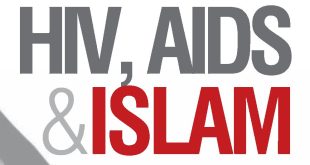Question and answer details
Name of Questioner :Elizabith
Reply date :2014/10/06
Question :Dear scholars, As-salamu `alaykum. How should the meat of udhiyah (sacrifice) be shared out?
consultant :Muhammad Saleh Al-Munajjid
Answer
Wa `alaykum as-salamu wa rahmatullahi wa barakatuh. In the Name of Allah, Most Gracious, Most Merciful. All praise and thanks are due to Allah, and peace and blessings be upon His Messenger.
Dear questioner, thanks a lot for your question, which shows your keenness on abiding by Allah’s laws and teachings. May Allah enlighten our hearts with the light of Islam!
Muslims slaughter animals during `Eid Al-Adha in emulation of Prophet Ibrahim (Abraham) who was about to slaughter his son, Isma`eel (Ishmael), to show obedience to Almighty Allah, when Isma`eel was redeemed by a ram brought to Ibrahim by Angel Gibreel (Gabriel). The Angel then conveyed to him Allah's Command to slaughter the ram instead.
Responding to the question, Sheikh M. S. Al-Munajjid, a prominent Saudi Muslim lecturer and author, states the following:
The command to give the meat of the sacrifice in charity is reported in a number of hadiths, as was the permission to eat some and preserve some.
Al-Bukhari and Muslim reported that `A’ishah (may Allah be pleased with her) said: Some poor families among the people of the desert came to Madinah on the occasion of `Eid Al-Adha at the time of the Prophet (peace and blessings be upon him). The Prophet said, “Keep with you meat sufficient for three days, and whatever is left, give in charity.” After that, they said, “O Messenger of Allah, the people made water-skins with [the hides of] their sacrificial animals, and they rendered the fat from them.” The Prophet (peace and blessings be upon him) said, “What about it?” They said, “You forbade us to eat the meat of our sacrificial animals after three days.” He said, “I forbade you to do that because of the people who came, but now eat some and preserve some and give some in charity.”
An-Nawawi said, commenting on this hadith, “The phrase ‘I forbade you to do that because of the people who came’ refers to the poor Bedouin who came to Madinah, and this was so that they could be helped. ‘Rendered’ means that they melted down the fat from the animals (to be stored and used).”
The phrase ‘I forbade you to do that because of the people who came, but now eat some and preserve some and give some in charity’ is a clear statement that this prohibition of keeping more than three days’ worth of meat no longer applies; it is also a commandment to eat some and to give some in charity.
With regard to the portion to be given in charity, if it is a voluntary sacrifice, then giving some of it in charity is obligatory, according to the view regarded by our companions as correct. It is preferable (mustahabb) for most of it to be given in charity. They said: At the very least, a third should be eaten, a third should be given as gifts, and a third should be given in charity. There is another opinion that suggests half may be eaten and half given in charity. This difference of opinion has to do with the amount that is mustahabb. With regard to the other parts of the animal, there is nothing wrong to give them in charity. As for eating from it, it is mustahabb but is not wajibObligatory or mandatory. Wajib is a religious task or duty that has become definite through sound evidence but that is not ordered as strongly as fard; like sacrificing an animal, performing witr and eid prayers. More (obligatory). The majority of scholars interpreted the command of eating in the following verse, (That they may witness things that are of benefit to them, and mention the name of Allah on appointed days over the beast of cattle that He hath bestowed upon them. Then eat thereof and feed therewith the poor unfortunate) (Al-Hajj 22: 28) to imply encouragement or permission, especially since it came after it had been prohibited.
Imam Malik said: There is no limit to what may be eaten or given in charity or used to feed the poor or the rich, whether one wants to give it uncooked or cooked. The Shafi`ie scholars said that it is mustahabb to give most of it in charity and said that at least one-third of it may be eaten, and one-third given in charity, and one-third given away as gifts. They said also that one-half may be eaten, but it is more correct to give some of it away in charity. Imam Ahmad said: we go along with the hadith of `Abdullah ibn `Abbas (may Allah be pleased with him): ‘He should eat one-third himself, feed one-third to whomever he wants, and give one-third in charity.’ This is also the opinion of Ibn Mas`ud and Ibn `Umar. No conflicting opinion is known among the Companions.
The reason why there is a difference of opinion as to how much of the sacrifice may be given in charity is that there are conflicting reports, and some reports were narrated without specifying a particular amount, such as the report of Buraydah (may Allah be pleased with him) who said: The Messenger of Allah (peace and blessings be upon him) said, “I had forbidden you to eat from the sacrificial meat for more than three days so that those who could afford it could give to those who are poor, but now you can eat as you wish, feed others from it, and preserve some” (Reported by At-Tirmidhi). The scholars among the Companions of the Prophet and others followed this.
Post Disclaimer | Support Us
Support Us
The sailanmuslim.com web site entirely supported by individual donors and well wishers. If you regularly visit this site and wish to show your appreciation, or if you wish to see further development of sailanmuslim.com, please donate us
IMPORTANT : All content hosted on sailanmuslim.com is solely for non-commercial purposes and with the permission of original copyright holders. Any other use of the hosted content, such as for financial gain, requires express approval from the copyright owners.
 Sri lanka Muslims Web Portal Sri Lanka Muslims News Center
Sri lanka Muslims Web Portal Sri Lanka Muslims News Center
 Donate
Donate


